How to reframe negative Hearthstone experiences (and win more as a result)
Learn to lose the salt and you can improve performances while having more fun in the process.
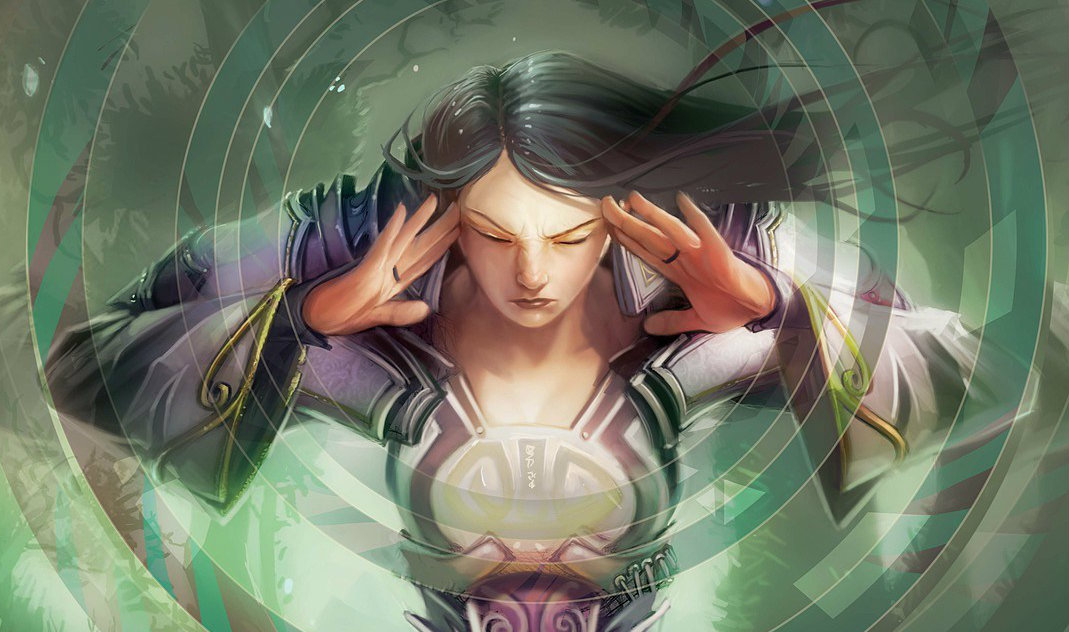
While Hearthstone can be a lot of fun, it’s no secret it can also be eye-wateringly frustrating, as anyone who’s faced down a turn one Vicious Fledgling knows. But step back for a moment and consider the fact that it isn’t the game itself that’s inherently fun or frustrating, it’s our minds which take what happens in-game and transforms it into those feelings. If you can accept that idea, then it should become possible to change the experiences you have while playing (at least to some degree). Now I’m not going to pretend I can make a six-game losing streak feel like a relaxing bubble bath, but there are ways to get less upset when things aren’t rolling your way, and play better as a result.
Let’s begin with a basic question: why do we play in the first place?
The easy answer is because Hearthstone is fun and we want to win. Part of what makes a game fun is what playing it signals about ourselves. In terms of Hearthstone, the signals we mostly want to send are intelligence-based (jokes aside). Being able to win with relative consistency requires the ability to know what goes into a good deck, understand the fundamental rules of the game, and have some sort of strategy when it comes to maximising the value of your cards. You also need to be able to anticipate potential outcomes, remember what cards you have available, what your opponent might be holding, and calculate probabilities. That’s quite a bit of thinking for the proverbial ‘children’s card game’.
If you beat other players more often than they beat you, that can serve as a signal of your superiority in some or all of those areas. The flipside is that losing has the opposite effect. This helps us understand why winning feels so good and losing sucks: Both are a reflection on you that extends beyond the game. It also helps us understand why some wins don’t feel as good, and some losses don’t sting as hard, and how we can begin to change our outlook.
Let’s talk specifically about some of the issues in Hearthstone that trigger the most salt, and see if we can reframe what they signal, the aim being to reduce our frustration as a result.
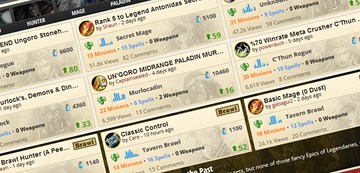
Problem #1: “Everyone netdecks, there’s no creativity”
Many players go online, see what decks are performing well, and then build copies for themselves. Other players lose sleep over this rampant plagiarism. Their aggravation appears to focus on what the origins of a deck signals about the player piloting it: if someone has built their own list, this tells you about their creativity, aesthetic preferences, and insights into the game. Someone who copies a deck built and refined by others no longer signals those traits And then they beat you with it. The nerve!
Reframe it...
It’s important to understand that, as humans much of our lives involves learning from others. That’s why we watch streams and talk (sometimes in CAPS) about the game online. If the game is presenting puzzles which you can’t effectively solve on your own—like what strategies are strong against the field—then looking to learn from others can signal that you understand your limitations, or that your main interest is in improving and figuring out the best way to accomplish a task. In this light, refusing help from other players signals stubbornness and may result in the failure to solve key problems.
Keep up to date with the most important stories and the best deals, as picked by the PC Gamer team.
Just because you accept some guidance on a matter doesn’t mean you need to let other people tell you how to build or play your deck entirely. Taking established decks or ideas from expert players and then putting your own spin on the list can make them feel like your own, and lead to a satisfying experience. Don’t think of it as plagiarizing, think of it as taking inspiration.
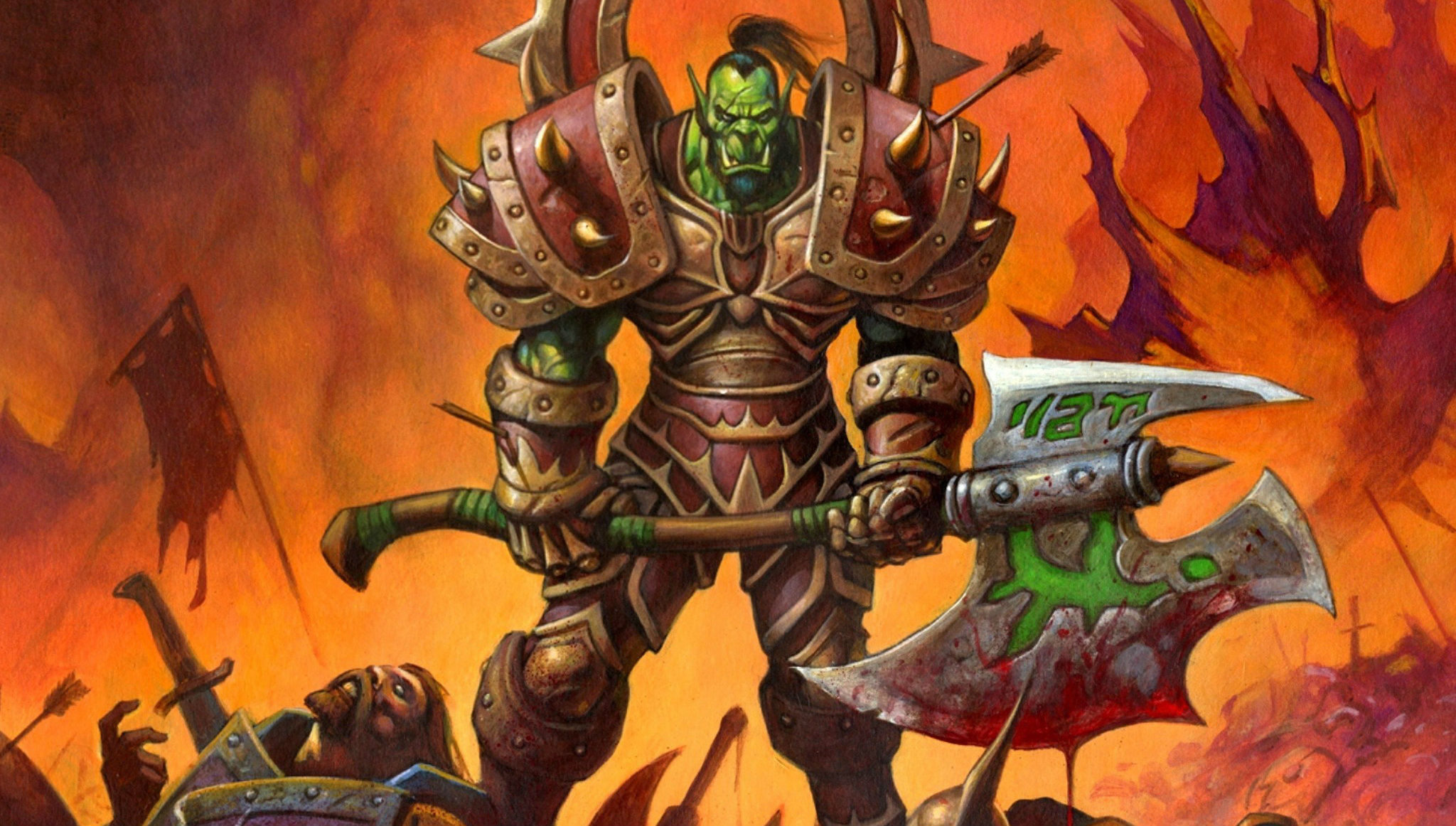
Problem #2: “Braindead aggro players are ruining the game”
Of all the frustrations I’ve read about Hearthstone, this one has to be top. There is a very real animosity shared by many players against aggressive decks because of this idea that they require little to no skill: you just play as many minions as you can and then go face until your opponent explodes or you run out of damage. Rephrased in terms of signaling, the aggressive strategy does not signal any kind of gaming knowledge because it is too easy to execute. In fact, the aggressive deck might even kill you before you have a chance to make any kind of meaningful choices yourself, which doesn’t feel fun.
Reframe it…
When an aggressive deck runs you over before you make decisions, you should realize there are decisions you made before the game began that contributed to that outcome. Is the deck you’re playing able to do anything about early pressure reliably? If not, your deck has a weakness that other strategies can exploit.
If other decks have a weakness you can exploit, realizing this and reacting accordingly can send a signal about your ability to understand the meta.
Conversely, being able to play an aggressive strategy is another tool for you. If other decks have a weakness you can exploit, realizing this and reacting accordingly can send a signal about your ability to understand the meta (and deck building. And the game). Refusing to use the full range of tools at your disposal is a bit like being a carpenter who can’t deal with screws because he only wants to use a hammer, so he complains that screws shouldn’t be useful and are for idiots. If you don’t want to play aggressive decks, that’s fine, but bear in mind that you have a self-imposed handicap.
Finally, aggressive decks have historically been some of the cheapest to craft for new players. Because of this, lower-skill players often play them because it’s the only good deck they can make. This has lead to associating lower-skilled players with aggressive decks, but that relationship isn’t caused by the decks being low skill. Avoiding an entire archetype because you’re trying to avoid an association with new players means missing out on a huge portion of the game, since fast decks come in many flavors.
Problem #3: “You can’t be competitive because of RNG”
Here’s another chart-topping frustration. The reason randomness is disliked is easy to appreciate: random outcomes can prevent you from signaling anything related to skill. RNG can give your opponent options they shouldn’t have access to or something brutally overpowered because they rolled ‘high’. This frustration isn’t restricted to cards with random effects, either: the randomness of how you draw from your deck determines many games. Surely, we can all agree randomness is bad for the game, right?
Reframe it…
This is one of the trickiest aspects of Hearthstone to reframe because randomness is inherently disruptive to any demonstration of skill. Still, you should first avoid focusing on the random events that happened in a game because it risks losing sight of the elements that were under your control. Perhaps you got blown out by a high-rolled Lightning Storm, but maybe you could have committed less minions to the board to mitigate that outcome. When a key pull from a Babbling Book wins a game, ask yourself whether a different line of play could have sealed a win before that point for you.
Not having RGN would dramatically increase the predictability of the game.
Random effects stand out in the memory, but that’s also kind of their point. RNG has the potential to generate exciting stories (and there are several YouTube channels devoted to those moments to prove it). Imagine if Hearthstone had no cards with random effects, and no random draws. This would certainly help reward better players, but it would also dramatically increase the predictability of the game. If you tire of playing against the same decks all the time, then you can appreciate how much worse that problem would get if those decks always did the same thing every single game. Many people don’t want to play a slot machine, but they also don’t want to play Synchronized Swimming: The Card Game.
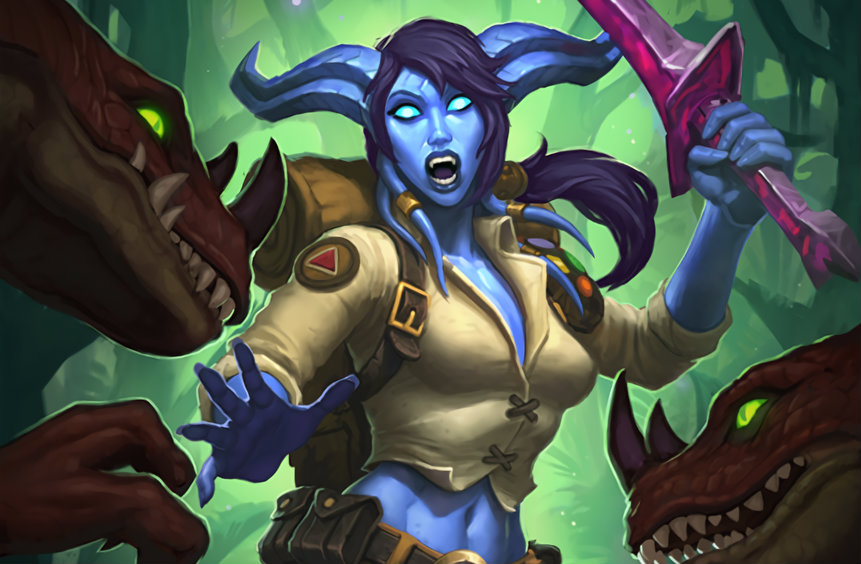
Problem #4: “Hearthstone makes you feel helpless”
If I understand the desires of the community, the ideal deck would be one with no random elements. It should also reward high skill, punish bad plays, and be cheap to build. This deck already existed: it was called Patron Warrior. It was also subsequently nerfed by the change to Warsong Commander. This change was made, in part, because people felt unhappy about losing to minions with Charge. They felt helpless against the deck when it went off. More recently, we’ve seen many complaints about a similar (but much weaker) deck: Quest Rogue. People feel bad when they cannot interact with (ie disrupt) an opponent’s game plan effectively, because it doesn’t allow them to signal their skills.
Reframe it…
What fewer players recognize is the inherent tension between rewarding high-skill players with wins and giving their opponents any chance. As a quick example, by removing the Charge ability from the Patron deck, the deck became more vulnerable to board clears. The result was that all the skill the Patron players put into resource management could be undone by a low-skill counter such as playing Hellfire. By demanding increased interactivity to counteract the sense of helplessness, players also demanded—albeit implicitly—that high-skill play be rewarded less.
The greater that skill differential, the greater degree of helplessness one can expect to experience.
Rewarding high-skill players with wins means punishing low-skill players with losses. In other words, low-skill players will feel helpless against the higher-skill ones. The greater that skill differential, the greater degree of helplessness one can expect to experience.
Importantly, this feeling of helplessness should exist regardless of how that win is achieved: whether your opponent is killing you with Charge damage or slowly grinding you out with infinite value, what you should feel helpless against is the higher-skill player, not their win condition. By giving the worse player a chance to win by increasing their ability to disrupt their opponent’s strategy (ie meaningfully interact) you can reduce the sense of helplessness, but at the cost of also rewarding better players less.
That said, sometimes you will feel helpless because your opponent just drew the nuts and you did not, or because you queued into a bad matchup. If that is what is bothering you, see the earlier sections concerning meta-reading and randomness.
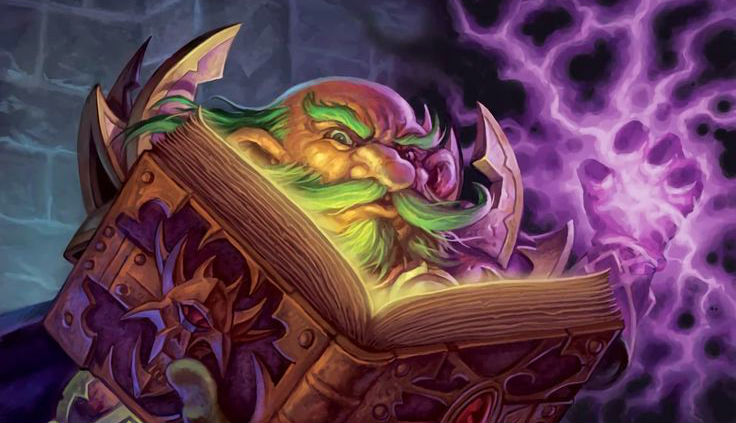
Problem #5: “It’s not my fault”
You know you’re a good player. Certainly better than average. You have your own ideas about what cards and decks are interesting. You’re an innovative thinker. You could easily hit legend if had the time to grind. Because of all these things, it is naturally frustrating to you that you just can’t seem to win as often as you expect. As you find you’re less able to signal your greatness, you naturally assume there is something wrong with the game: there’s too much RNG, certain cards or decks are too strong, or all those powerful strategies are brainless. If only the game was designed better, you’d surely be doing better.
Reframe it…
This might be the hardest point for many players to hear and appreciate, but you need to have the traits you are trying to signal before in order for the game to be able to help show them off. More brutally: are you sure you got good? Accurately figuring out how good you are is a hard task, especially as it may mean admitting that you initially overestimated yourself. Being able to say, “I lost because I made bad choices,” is one of the most important skills to have if you want to win more Hearthstone games in the future.
If you approach the game thinking you already have the traits and skills you are trying to signal, the result will likely be that you explain your losses (and difficulty in reaching rank 5) by referencing some problem with the game. This mindset of justifying your losses, bad ideas, and frustrations may prevent you from developing the learning mindset needed to cultivate the very traits you hope to demonstrate. It’s the difference between claiming a loss was unfair and wondering what you might do differently in the future. Only the latter approach will help you improve, both in terms of winning and enjoying the game.
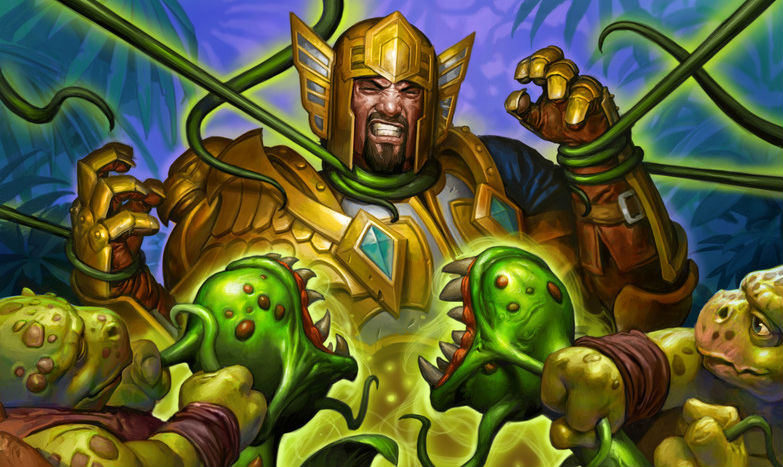
Final thoughts
While there are other reasons people take pleasure from Hearthstone, a key point to realize is that we are all trying to show off facets of our personalities. It can be frustrating when other players have different goals, because it makes your opponent seem like they’re playing according to a different set of unspoken rules.
While that might be frustrating, it’s important to realize that there is no right answer to the question of what you should be trying to signal. Just as you don’t want to be forced to to play the game in a certain way, remember that others feel the same way. While other people’s preferred deck or play style might frustrate you, yours probably annoys the hell out of them too. You hate Aggro? They hate 20-minute control matches. You hate netdecks? They like winning.

